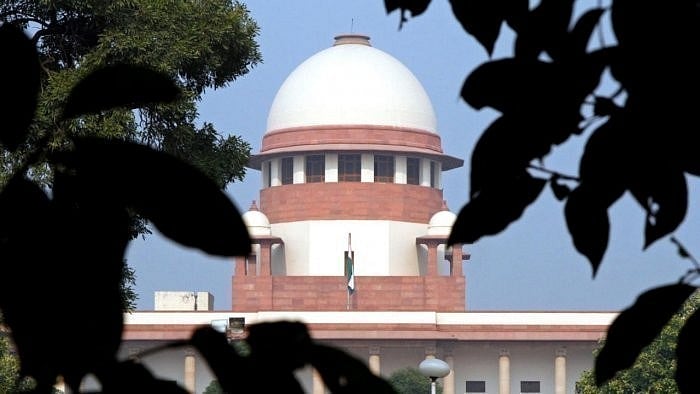
The Supreme Court of India.
Credit: PTI File Photo
The Supreme Court’s advice in response to the Presidential Reference on powers of the President and state governors with respect to assent for bills passed by the legislature is an enunciation of the ideal constitutional position in an ideal political scenario. It does not help to remedy the situation created by governors who conduct themselves as politicians in the real world. At the centre of the issue is the refusal of governors in Opposition-ruled states to give assent to legislative bills. Their inaction was against the spirit of the Constitution, which prescribes that they should give assent to the bills, refer them to the President, or return them “as early as possible”. The matter was taken to court after some governors sat on the bills for even two years. In April, a bench headed by Justice J B Pardiwala presented a solution by setting a timeline for these decisions. The Court has now opined that the President and governors cannot be bound by a timeline because of their constitutional position.
It is contended that the Constitution, which envisages a balance between powers of the organs of State, does not permit courts to impose procedural timelines on constitutional authorities. While the Court says governors do not have “unfettered powers” to sit on bills, states can seek judicial review in case of inordinate delay. Since “prolonged and evasive inaction” by the governor is not defined, it can be interpreted subjectively – the state government might view inaction for a month as a delay, while the governor might not consider even a six-month delay as too long. The Court said a bill delayed by a governor cannot be seen as having “deemed assent” as it does not exist as a constitutional idea. Where the earlier judgment had closed provisions for inordinate delay, the top court has now opened the possibility of protracted litigation by states. The verdict will strengthen the position of the Centre and the governors in federal matters involving states. This is a setback to the idea of federalism and the primacy of the people’s will.
Since the advice is not binding, the earlier judgment’s idea of “deemed consent” still stands. The Central government or the governors will have to appeal against that judgment or seek a review to supersede it. In the April judgment, the Court said governors must respect the settled conventions of democracy. Its new advice takes a strictly literal view, which hurts the spirit of the Constitution and the best conventions of democracy.
